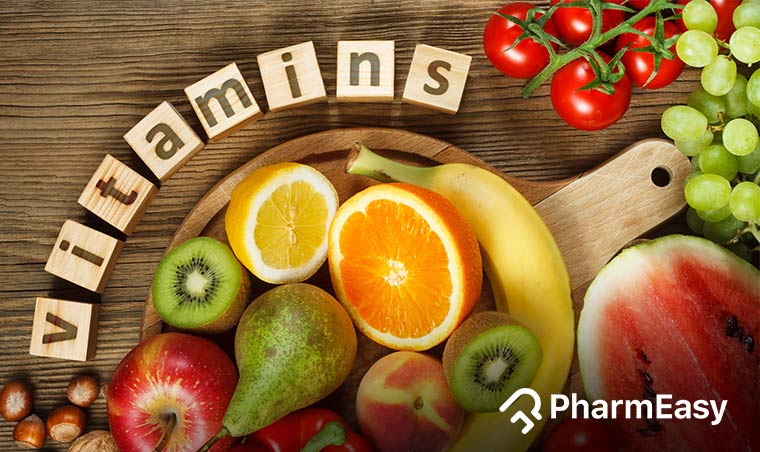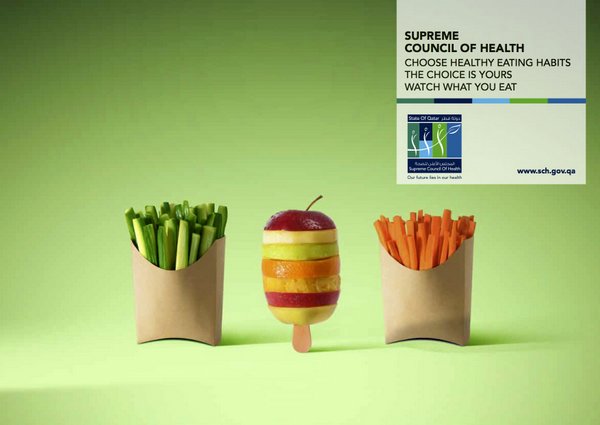
Nutrition is important for human health. Research shows that better nutrition helps infants grow stronger and have a healthier immune system. It also helps people stay healthier during pregnancy and reduces the risk of non-communicable diseases. People who eat balanced meals are more productive and less likely to succumb to hunger. Malnutrition is a serious threat to our health. The world faces double the burden of malnutrition due to undernutrition in low income countries and overweight.
The process of nutrition refers to the process whereby living organisms absorb food. This allows them to live and reproduce. Many important nutrients are found in food. Proper nutrition can help to choose healthier foods. This can help you to understand the health benefits of choosing the right foods. This will allow you to make healthier food choices. Listed below are some of the most important nutrients in human nutrition.

What is nutrition? Nutrition is the study or the use of nutrients in food. The scientific principles of nutrition are derived from molecular biology, biochemistry, genetics, and food metabolism. The primary goal of nutrition scientists is to improve human health and reduce the risk of chronic disease and allergies. To help people improve their health and decrease their risk of certain diseases and conditions, researchers have focused on the role of nutrients in the human body.
There are many types and types of nutrition. This includes the foods we eat, how each food is made, and what they contain. The nutrition process has three parts. First, food is eaten. Next, the food is consumed. Once the nutrients are digested, they are used by the body as fuel for the different parts of the body. For example, nutrients provide the body with essential vitamins and minerals.
For our bodies health, the food we eat is important. It provides us with many vital nutrients, and it supplies our bodies with energy. Healthier eating habits are key to good health. But what exactly is the ideal diet for you? It depends on what you eat and how much time you spend eating. You should avoid foods high in sodium if you're overweight.

There are three major types of nutrition. The macronutrients are the first. These are the nutrients that we require in large quantities. Complex carbs can be classified as sugars. They can also help move food through your digestive system. They give you energy and support healthy digestion. Micronutrients are another important part of your diet. Fiber is important to keep your digestive system strong and healthy.
FAQ
Egg is good for you?
All nutrients are contained in the egg. It supports strong bones, healthy heart, lungs, and stable blood sugar.
Eggs are rich in protein, vitamin A, B12 and D,E,K, as well as vitamins A,B12 and D,E,K, calcium, iron, phosphorus, manganese, copper, magnesium, and riboflavin.
Egg yolks are high in cholesterol. However, it does not contain saturated fat. Eggs contain less saturated fat than most other foods.
They are also low calories and sodium. They are very versatile and can be cooked any way you'd like. They can be fried, poached, scrambled, boiled, hard-boil and baked.
They are very nutritious and easy-to-prepare.
Two whole eggs should be eaten each day. You should eat eggs if you are allergic to them.
Eggs provide essential nutrients needed by our bodies. You can add eggs to your daily diet now.
Which workout is the most effective for men
It depends on what you're looking for. Cardio workouts can help you lose weight faster than strength training.
On the other hand, if you just want to build muscle mass, then strength training is better since it increases lean body mass.
Both types have been proven to have benefits for your overall well-being.
I recommend HIIT (or sprint interval training) if you want to be fit quickly. This type helps you burn fat quickly, by increasing your metabolism. This type of training also increases your endurance, allowing you to train even when you are tired.
Are There Any Benefits Of Doing Yoga?
Yoga has been popular since ancient times. Yoga is now very fashionable among celebrities and everyday people who want to look and feel good.
Yoga is great because it strengthens your muscles as well as stretches them. Yoga can also help calm your mind and relax you.
Yoga and other forms exercise differ in that yoga is focused on breathing techniques.
To improve your balance and flexibility, you can try different poses.
What foods should I avoid when trying lose weight?
Avoid trans fats. Trans fats increase LDL cholesterol (the bad) and decrease HDL cholesterol (the healthy).
Trans fats are found in deep-fried foods, fast food, packaged baked goods, snack cakes, and other processed foods.
These unhealthy fats cause inflammation which leads to heart disease, diabetes, and other health problems.
Foods containing artificial sweeteners should also be avoided. Artificial sweeteners may increase your chance of getting cancer.
These chemicals are found in many products, including soft drinks, candy bars, chewing gum, as well as candy bars. They also appear in meat, poultry and eggs.
Artificial sweeteners include saccharin and sorbitol.
The American Heart Association suggests that you avoid these chemicals as they can cause DNA damage in your cells.
Does weightlifting burn more fat than other forms of exercise?
Weight lifting does burn fat faster, but only if you combine it with cardio workouts.
It is important to do weightlifting right after cardio exercise in order to reap the full benefits.
If done correctly, weightlifting can increase your heart rate and oxygen intake which in turn helps you lose weight.
You will not notice any changes in your body composition if you don’t combine it and cardio.
Statistics
- Get free shipping and 25% off today. (healthline.com)
- By John Thompson Take a whopping 38% off a set of PowerBlock Pros. (menshealth.com)
- An estimated calorie range for moderately active adult males falls between 2,200 to 2,800 calories per day, depending on age. (eatright.org)
- According to the American Academy of Dermatology (AAD), men over 50 are at a heightened risk of developing it. (healthline.com)
- The PRS enabled risk stratification for overall prostate cancer and lethal disease with a four-fold difference between men in the highest and lowest quartiles (HR, 4.32; 95% confidence interval [CI], 3.16-5.89). (pubmed.ncbi.nlm.nih.gov)
External Links
How To
How do I lose weight while working out?
Exercise reduces calories by increasing metabolism, and oxygen consumption.
At moderate intensity, you will lose weight easily.
These are some tips to help you lose fat while working out:
-
Cardio exercises can include running, walking, swimming or cycling.
-
Exercise for 30 minutes three times per week.
-
You can lose weight by adding strength training to the routine.
-
Avoid intense training. It's possible to build muscle, but not lose it.
-
Drink plenty of water during exercise. Water flushes out toxins, and keeps your body properly hydrated.
-
After exercising, you should drink low-fat protein drinks. Protein shakes are great for your muscles and energy.
-
Eat smaller meals throughout the day, so you don't feel hungry between meals.
-
Don't skip breakfast! Skipping breakfast can cause you to feel tired and sluggish.
-
Take care to your mental well-being. Stressful situations can affect your metabolism.
-
Keep a positive attitude. Studies show that overweight people are more likely to be obese than those who perceive themselves as attractive.
-
Sleep enough. A lack of sleep makes it difficult to lose fat.
-
Be active. Be sure to get up and move around every hour or two.
-
Maintain a healthy diet. Eating right keeps you feeling full and satisfied longer.
-
Find relaxation techniques. Your body won't release stress hormones that cause muscle tissue destruction if you have a tense mind.
A balanced diet includes all essential nutrients needed for growth and development.
Instead of eating three large meals a day, eat six smaller meals every day. This allows your body to properly digest what you have eaten.
For strong bones to be maintained, you need approximately 500mg of calcium per day. Calcium can also be found in milk products, yogurt, fortified Soy beverages, orange Juice, cereals and bread.
Calcium comes from leafy green vegetables, beans, tofu, nuts, seeds, and cheese.
Your body needs vitamin D to absorb calcium. Vitamin D can be found in egg yolk, fatty fish, and other fortified foods.
Vitamin E is crucial for skin health. It can be found as a vegetable oil, wheat germ, peanuts or almonds.
Your body needs zinc to maintain normal immune function and heal wounds. Zinc can be found as a mineral in oysters.
Zinc deficiencies can lead to fatigue, decreased appetite, depression, and reduced immunity.
Eating too much sugar causes insulin resistance, which increases blood glucose levels. Insulin resistance leads to weight gain.
Insulin resistance is caused by high blood levels of free-radicals. Free radicals can be molecules with unpaired electrons that cause damage to cell membranes.
Food additives, pesticides and herbicides, as well as preservatives, smoking and radiation are all sources of free radicals.
Free radical damage can cause cancer, heart disease and diabetes, as well as arthritis, asthma, and other diseases.
Antioxidants are essential for preventing free radical damage. Antioxidants protect against oxidative damage.
Vitamin C can be found in citrus fruits. Beta carotene can be found in carrots. Sweet potatoes. Tomatoes. Carrots. Sweet potatoes. Spinach. Broccoli. Cantaloupe. Vitamin E is found in nuts. Olive oil, avocados.
Additional antioxidant nutrients include selenium and copper, manganese and zinc.
Selenium protects cells from free radical damage. Selenium can also be found in Brazil nuts (tuna), liver, kidneys and shrimp.
Copper protects eyes, brain, lungs and red cells. Copper can be found in shellfish and poultry as well as meat and organ meats.
Manganese, an essential component of bone strength, is crucial. Manganese can also be found in oatmeal, brown rice, spinach and bananas.
Zinc is essential for normal growth, reproduction, wound healing, and average growth. Zn can also be found in white fish, lean cuts of meat, poultry, and eggs.